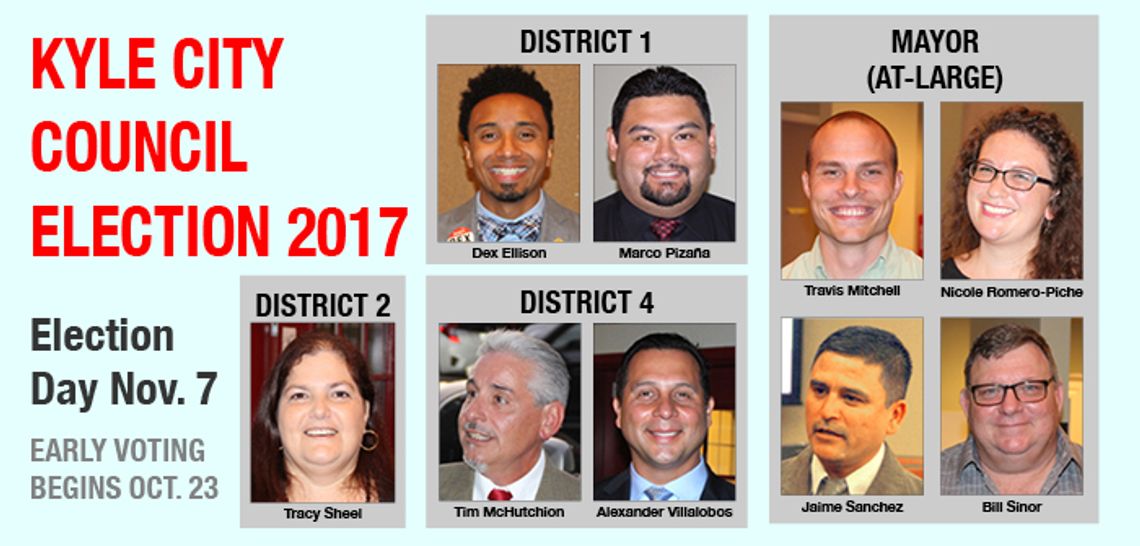Taxes, high water bills, sidewalk improvements and transportation were a few of the topics addressed by candidates at Monday’s Kyle city council candidate forum.
Tracy Sheel
PLEASE LOG IN FOR PREMIUM CONTENT. Our website requires visitors to log in to view the best local news.
Not yet a subscriber? Subscribe today!











